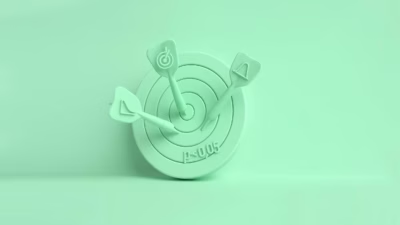You ever stand in front of two ice cream trucks, both blasting terrible music, both claiming to have the “best” treat—and somehow you’re paralyzed?
That’s exactly what picking between a data science bootcamp and self-study feels like.
One promises speed and structure.
The other promises freedom and saving cash.
And if you’re anything like I was when I first started out, you’re probably thinking: Which one’s actually going to get me there without wasting months—or thousands of dollars?
You’re not alone, friend. Let’s sit with this question, turn it around, shine a flashlight under it, and see what’s really going on. I’ll share some candid stories, a few not-so-obvious truths, and by the end, you’ll have a gut feeling about which path fits you best.
No vague advice. No “it depends” cop-out.
Let’s dive straight in.
First, What Are We Really Choosing Between?
Let’s strip the marketing gloss off.
- Bootcamps are like personal trainers: structured, deadline-driven, expensive, but motivating.
- Self-study is like YouTube fitness: free (or cheap), flexible, but you have to fight your own laziness demons daily.
Both paths can work. Both paths can fail.
The real difference? How much structure and accountability you need—and what trade-offs you’re willing to live with.
When I tried self-studying Python the first time, I downloaded a bunch of Udemy courses… and then spent six weeks reorganizing my “Learning Plan” folder without actually coding anything.
(Yes, tragic. Yes, real.)
When I later joined a mini bootcamp, I finished more projects in one month than I’d done in the six months before.
But guess what? I also racked up $4000 in credit card debt I spent a year paying off.
So… double-edged sword, right?
Let’s break them down properly.
The Bootcamp Route: What It’s Really Like
Bootcamps sound so good on paper:
“Become a data scientist in 12 weeks!”
“Land a six-figure job fast!”
And some of them do deliver something close to that.
(Shoutout to places like Data Science Retreat, Springboard, and DataQuest—they’re legit.)
But here’s the unsexy truth:
Bootcamps don’t magically make you skilled.
They accelerate your journey—if you’re ready to sprint.
Expect this if you choose a bootcamp:
- Pace: It’s a firehose. 6–8 hours of serious work a day, projects every week.
- Cost: Ranges wildly. Anywhere from $5K to $20K+.
- Structure: Clear curriculum, deadlines, mentors, feedback loops.
- Networking: Career coaches, alumni intros, mock interviews.
- Pressure: You will doubt yourself, especially around week 3 when everything feels broken.
The best part?
You’re forced to ship projects.
You’re held accountable when you wanna Netflix instead.
You get a support system when you hit that “I’m too dumb for this” wall (it will happen).
The worst part?
If you can’t keep up—or life throws you curveballs—there’s little mercy.
And if you pick a low-quality bootcamp? You’re basically buying overpriced YouTube videos.
(Yes, some are that bad. Research hard.)
The Self-Study Route: What It’s Really Like
Self-studying is the Wild West.
It can be beautiful freedom… or paralyzing chaos.
If you self-study well, you get:
- Cost savings: You can learn almost everything for free or cheap. (Coursera, edX, Kaggle, YouTube—goldmines.)
- Flexibility: Got kids? A full-time job? You can still sneak in two hours a night.
- Customization: Wanna dive into NLP first? Cool. Prefer computer vision? Do it.
But here’s the dark underbelly:
Without a roadmap, you’ll waste months bouncing between shiny objects.
You’ll start an “Intro to Python” course.
Pause midway to do a “Deep Learning Bootcamp” webinar.
Then chase an “AWS Data Engineer Certification” because Reddit said it’s hot.
Result?
Six months later, you’re a master of nothing, tired, and wondering if you should just go be a barista instead.
If you self-study, you must learn two meta-skills:
- Self-discipline: Show up daily, even when you’re lost.
- Curation: Ruthlessly pick a few good resources and finish them before adding new ones.
How to Know Which Path Fits You
Forget all the Reddit wars between “Bootcamps are scams!” and “Self-study is for broke losers!”
This is about you—your brain, your life, your real constraints.
Ask yourself brutally:
- How good am I at finishing things on my own?
(If you tend to drift without deadlines, bootcamp might be your lifeline.) - What’s my financial situation right now?
(Can you invest $8K–$15K without causing existential panic? If not, self-study it is.) - How soon do I need to switch careers?
(If the clock’s ticking—like you’re stuck in a job you hate—bootcamp speed might save your sanity.) - Am I more motivated by community or autonomy?
(Bootcamps give you cohorts and cheerleaders. Self-study demands inner fire.) - Can I build my own accountability system?
(If yes, self-study becomes 10x easier.)
Quick personal story:
When I finally got serious about self-studying, I made a pact with a friend.
Every Sunday, we had to send each other proof of what we learned: a mini project, a GitHub commit, something real.
Miss two weeks in a row? You owed $50 to a “punishment fund” (we donated ours to a local animal shelter).
It worked like magic.
Cheap. Fun. Deadly effective.
You can hack your way to discipline if you’re creative.
The Hybrid Secret Nobody Talks About
Okay, real talk:
The smartest learners in 2025 aren’t picking one or the other.
They’re hacking both.
Here’s how:
- Start with self-study for the basics (Python, stats, SQL, basic ML). $100 budget tops.
- Join a short, part-time bootcamp once you’ve got momentum—ideally focused on projects and career support.
- Use bootcamp for accountability, not babysitting.
Result?
You save thousands.
You hit the ground running in a bootcamp instead of drowning.
You learn how to self-learn—an absolute superpower in tech.
This hybrid model is exactly what most successful career switchers are doing today.
(But it doesn’t sound as sexy on a sales page, so bootcamps won’t tell you.)
Wrapping It All Up: Which Path Should You Choose?
If you need massive structure, fast pacing, career coaching, and have the cash ready:
👉 Bootcamp it.
If you crave flexibility, want to save money, can set your own goals, and aren’t afraid to eat some uncertainty:
👉 Self-study.
And if you’re clever?
👉 Hack both.
Start cheap. Build grit. Add structured help when it amplifies your momentum, not replaces it.
Remember:
No bootcamp or YouTube channel or Coursera certificate is going to drag you across the finish line.
You are the magic ingredient.
You decide whether you ship projects, learn deeply, and tell your story confidently to employers.
And you know what?
If you’re even asking yourself this question seriously, you’re already ahead of 80% of wannabes who just dream about switching into data.
Now pick your path.
Take one tiny step today.
And watch how fast you surprise yourself. 🚀
If you want, I can also sketch a quick “Sample Roadmap” — like “If you self-study, here’s a 6-month plan” — just holler!
Might make the decision even clearer. 🎯
(Want me to?)





